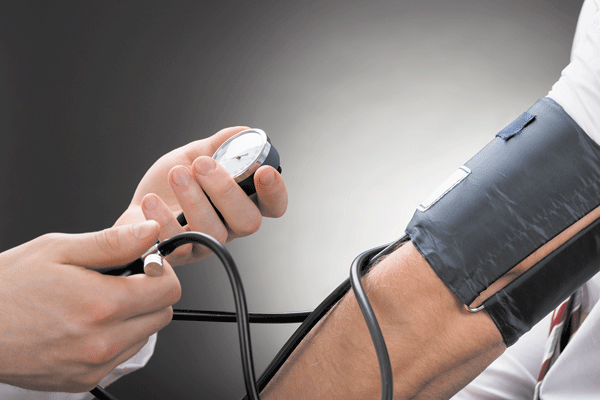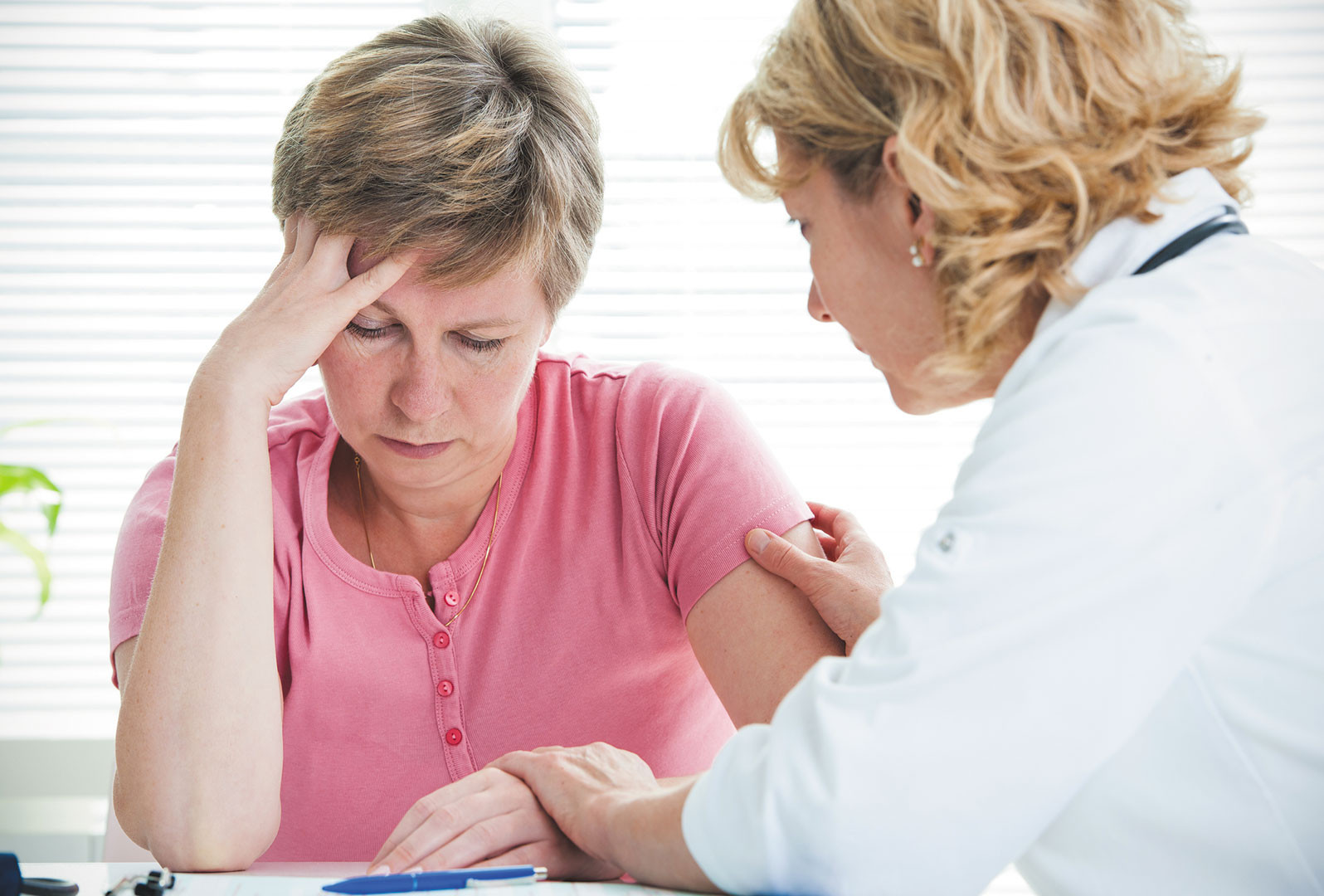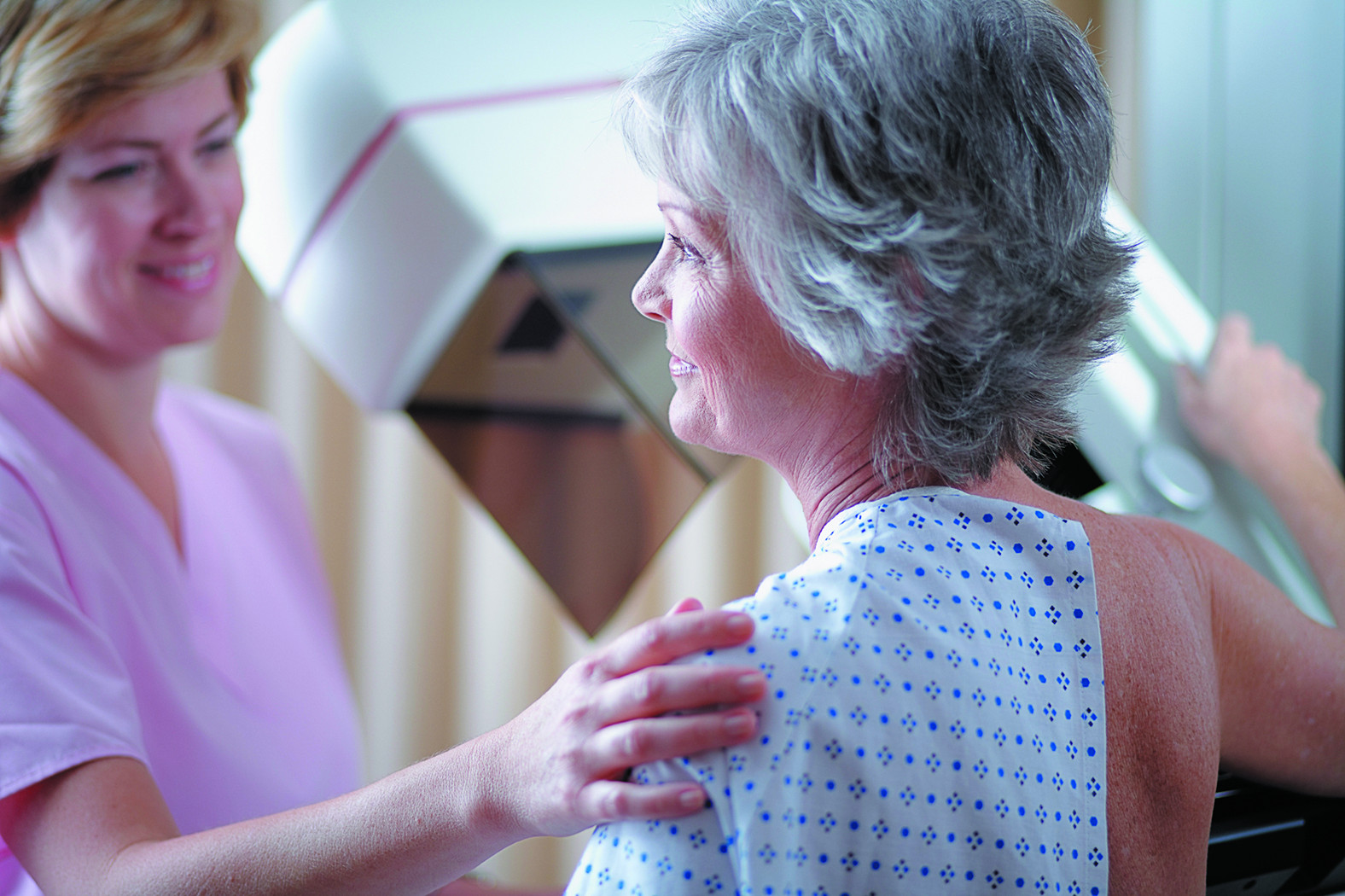Recent Blog Articles

How — and why — to fit more fiber and fermented food into your meals

Tick season is expanding: Protect yourself against Lyme disease

What? Another medical form to fill out?

How do trees and green spaces enhance our health?

A muscle-building obsession in boys: What to know and do

Harvard Health Ad Watch: New drug, old song, clever tagline

Concussion in children: What to know and do

What color is your tongue? What's healthy, what's not?

Your amazing parathyroid glands

When — and how — should you be screened for colon cancer?
Screening Tests for Women Archive
Articles
Screening tests you probably don’t need
Some tests that are widely offered for screening aren't advised for generally healthy people and may lead to unnecessary procedures.
Image: alptv/Thinkstock
You've probably had more than a few screening tests—blood pressure and cholesterol checks, mammograms, Pap smears, and colonoscopies. However, health fairs and clinics often promote screening tests you might not have had. If you've wondered whether they're a worthwhile investment in your health, the United States Preventive Services Task Force (USPSTF) can help you. The USPSTF is a panel of primary care physicians and epidemiologists appointed and funded by the U.S. Department of Health and Human Services. Its role is to develop clinical practice guidelines—recommendations for clinicians about the care of patients with specific conditions. Other health organizations also develop guidelines.
"We've known for some time that there is a wide variation in the way medicine is practiced across parts of the country," says Dr. Mark Aronson, professor of medicine at Harvard Medical School. "Guidelines are based upon the best available research evidence and practice experience and are meant to give guidance to doctors for best practices."
Beware of low diastolic readings when treated for high blood pressure
New research has linked heart tissue damage to blood pressure treatments that drive diastolic pressure (the bottom number in a reading) too low.
Top screenings to avoid cancer
Talk to your doctor to nail down your cancer risk, and check this list to see which tests may help save your life.
Images: Monkey Business Images/Thinkstock
Recommendations for cancer screenings sometimes change, and it can be confusing about which tests you need and when. "It's best to talk to your doctor about your cancer risk factors and family history, learn which screenings are right for you, and then develop and stick to a screening schedule," says Dr. JoAnn Manson, chief of preventive medicine at Harvard-affiliated Brigham and Women's Hospital.
Routine screenings
Other screening tests
Some screenings are not recommended routinely but may be important based on your cancer risk.
Lung cancer. The American Lung Association recommends low-dose computed tomography to detect early signs of lung cancer for heavy smokers ages 55 to 74 who have a 30 pack-year smoking history (equivalent to one pack per day for 30 years) and who have smoked within the past 15 years. The USPSTF extends the screening age to 80. If you're not in this group, you should not have routine screening; the risk from radiation exposure and potential unnecessary follow-up testing is not worth the small chance of benefit.
Skin cancer. The USPSTF says there's not enough evidence to recommend regular visual skin exams by a doctor to screen for skin cancer, and that screenings increase the risk for unnecessary biopsies, overdiagnosis, and overtreatment. The American Academy of Dermatology suggests that all people conduct skin self-exams and report any unusual spots on their skin to a dermatologist.
People with an increased risk for melanoma, the deadliest form of skin cancer, should talk to a dermatologist about how often they should get a skin exam.
What about a PSA test?One of the most debated screenings is the blood test used to look for prostate cancer in men. It measures the level of a protein in the blood called prostate-specific antigen (PSA), which can rise when prostate cancer develops. In 2012, the USPSTF recommended against routine PSA tests, saying they raise the risk of unnecessary follow-up testing and treatment, which can cause problems such as incontinence and erectile dysfunction. Recent evidence shows that fewer men are being screened as a result. "The sentiment among many physicians now is against offering routine PSA testing for men, especially when nearly every study has not shown any tangible benefits for those who have undergone testing and treatment," says oncologist Dr. Marc Garnick, editor in chief of Harvard's Annual Report on Prostate Diseases. The American Cancer Society suggests that men 50 or older (at average risk for prostate cancer) make the decision about screening with their doctor, but only if they have a life expectancy of at least 10 years, and only if they have been advised about the uncertainties, risks, and potential benefits of prostate cancer screening. |
A new look at colon cancer screening
Don't be intimidated about screening tests. The latest guidelines suggest you can choose from multiple strategies.
Image: Bigstock
Colon cancer continues to be the country's second leading cause of cancer-related deaths and the third most common cancer in men, according to the CDC.
It almost always develops from precancerous polyps (abnormal growths). Screening tests, which are recommended for men ages 50 to 75, help find and sometimes aid removal of polyps before they become cancer. (Men older than 75 may still benefit, depending on their health.)
Dense-breast notification letters are confusing, study shows
Letters notifying women that they have dense breasts are difficult to understand. Women receiving them should contact their doctors.
Mammograms identify heart disease risk
Research We’re Watching
Image: Frans Rombout/Thinkstock
When specks of calcium appear in ductal tissue on mammograms, they can indicate a small cancer. But when calcifications are found in the breast arteries, they haven't been a cause for concern. However, in recent years, physicians have begun to suspect that arterial calcifications in the breast, like calcifications in the coronary arteries of the heart, can be an early sign of cardiovascular disease.
A team of researchers at Mount Sinai St. Luke's Medical Center in New York City studied the test results of 292 women who'd had digital mammography and non-contrast CT chest scans within a year. None of the women were known to have heart disease. They found that 42.5% of the women had evidence of breast artery calcifications on mammography, and of these, 70% also had evidence of coronary artery calcification on their CT scans. Moreover, 63% of those whose CT images revealed coronary artery calcifications had breast artery calcifications as well. Over all, the results indicated that women with breast artery calcifications are three times as likely as those who don't to have coronary artery calcifications. The study was published online March 24, 2016, by JACC Clinical Imaging.
Can mammograms help reveal heart disease?
Research we're watching
Mammograms, which are widely used to detect early breast cancer, may also be an effective tool for spotting early signs of heart disease, a small study suggests.
The study, in the April JACC: Cardiology Imaging, involved nearly 300 women free of heart disease. All underwent both a mammogram and a computed tomography (CT) scan of the chest. The mammograms showed calcifications (which look like a chalked line) in the arteries within the breast in just over 40% of the women. These artery calcifications are different from the irregular spots of calcifications that may indicate early cancer.
Do you need a depression screening?
News Briefs
Don't be surprised if your doctor screens you for depression at your next visit. An update to the U.S. Preventive Services Task Force recommendations for screenings, published Jan. 26, 2016, in The Journal of the American Medical Association, suggests that all adults 18 or older, including older adults, should be screened for depression when there are systems in place to ensure accurate diagnosis, effective treatment, and appropriate follow-up. The previous recommendations encouraged selective screening based on professional judgment and patient preferences. The new recommendation also includes pregnant and postpartum women for the first time. "Older adults often struggle with chronic disease, or the loss of a loved one, which may lead to depression," says Dr. Michael Craig Miller, an assistant professor of psychiatry at Harvard Medical School. "Screening is just a way to open the door for people who might otherwise not get the help they need." Dr. Miller says screening can simply be asking if, over a two-week period, you have either had little interest or pleasure in doing things or felt depressed and hopeless.
Do you really need that cancer screening?
Image: Thinkstock
A research letter published online Jan. 21, 2016, in JAMA Oncology suggests that many older adults are getting unnecessary cancer screenings. Researchers looked at questionnaire answers from about 150,000 seniors (ages 65 or older) across the country, and found that about half had received prostate-specific antigen (PSA) testing or mammography in the past year. But a third of those screened did not have a 10-year life expectancy, a major guideline for screening. Unnecessary screening rates varied by state—for example, 11% in Colorado and about 20% in Georgia. "Undergoing a screening test may actually cause more harm than good, especially with older patients or those with significant medical conditions," says Dr. Marc Garnick, an oncologist at Beth Israel Deaconess Medical Center and editor in chief of Harvard's Annual Report on Prostate Diseases. So talk to your doctor about the guidelines. Both the American Cancer Society (ACS) and the U.S. Preventive Services Task Force (USPSTF) recommend routine mammograms every two years for women ages 55 to 74. The ACS does not recommend mammograms in this age group if a woman has a life expectancy of less than 10 years.
For all men, the USPSTF recommends against routine PSA testing. The ACS suggests that men 50 or older (at average risk for prostate cancer) make the decision about screening with their doctor, but only if they have a life expectancy of at least 10 years, and only if they have been advised about the uncertainties, risks, and potential benefits of prostate cancer screening.
Passing your physical exam
The annual check-up is important for older men. Here is how to make the most out of your visit.
Men have a long reputation for avoiding check-ups, and that resistance tends not to soften when they are older.
"Many older men put off exams because they fear finding out something is wrong," says Dr. Suzanne Salamon, a geriatrician with Harvard-affiliated Beth Israel Deaconess Medical Center. "Also, many of today's baby boomers don't think they will have medical problems associated with age, so it can difficult for the 'younger older men,' like those in their 60s and early 70s, to see their doctor."
Recent Blog Articles

How — and why — to fit more fiber and fermented food into your meals

Tick season is expanding: Protect yourself against Lyme disease

What? Another medical form to fill out?

How do trees and green spaces enhance our health?

A muscle-building obsession in boys: What to know and do

Harvard Health Ad Watch: New drug, old song, clever tagline

Concussion in children: What to know and do

What color is your tongue? What's healthy, what's not?

Your amazing parathyroid glands

When — and how — should you be screened for colon cancer?
Free Healthbeat Signup
Get the latest in health news delivered to your inbox!
Sign Up











